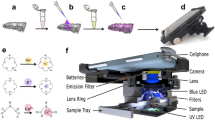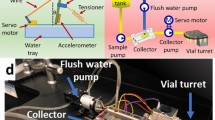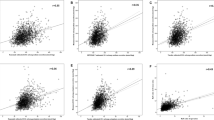Abstract
THE electrodialyser previously described1 has been used for desalting samples of urine prior to chromatography. This apparatus (obtainable from Shandon Scientific Co., Ltd., 6 Cromwell Place, London, S.W.7) was used successfully in the desalting of tissue extracts ; but Smith2, using a modified version of the desalter, reported considerable losses of amino-acids during desalting of urine. It was considered desirable to repeat the experiments in the original apparatus by plotting the ‘desalting curve’ and submitting samples desalted for varying lengths of time to two-dimensional chromatography.
This is a preview of subscription content, access via your institution
Access options
Subscribe to this journal
Receive 51 print issues and online access
$199.00 per year
only $3.90 per issue
Buy this article
- Purchase on Springer Link
- Instant access to full article PDF
Prices may be subject to local taxes which are calculated during checkout
Similar content being viewed by others
References
Wood, T., Biochem. J., 62, 611 (1956).
Smith, I. (ed.), “Chromatographic Techniques, Clinical and Biochemical Applications” (Heinemann, London, 1958).
Author information
Authors and Affiliations
Rights and permissions
About this article
Cite this article
WOOD, T. Desalting of Urine by Electrodialysis. Nature 186, 634–635 (1960). https://doi.org/10.1038/186634a0
Issue Date:
DOI: https://doi.org/10.1038/186634a0
This article is cited by
-
Selective Electrodialysis for Copper Removal from Brackish Water and Coal Seam Gas Water
International Journal of Environmental Research (2017)
Comments
By submitting a comment you agree to abide by our Terms and Community Guidelines. If you find something abusive or that does not comply with our terms or guidelines please flag it as inappropriate.



